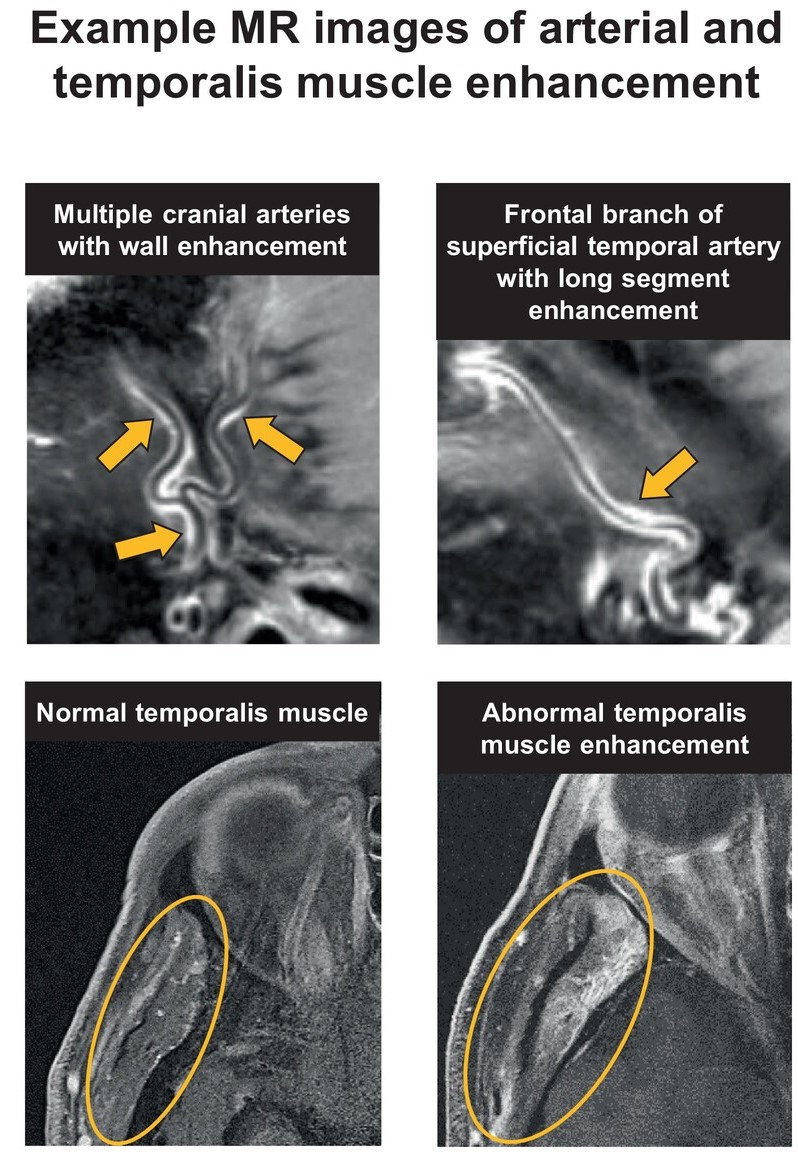WIP- Penn Giant Cell Arteritis (Temporal Arteritis) Fast-Track Program
PATIENT PHONE LINE: 215-662-4333
PHYSICIAN DEDICATED TRIAGE PHONE: 215-614-0999
EMAIL: gcafast@pennmedicine.upenn.edu
Given the high risk of rapid vision loss, we understand the importance of evaluating and managing GCA promptly. Similarly, minimizing unnecessary exposure to glucocorticoids or steroids and its many side effects is also important to patients.
The goals of this program are:
Provide |
Rapid evaluation of suspected new or relapsing GCA through a comprehensive, multi-disciplinary approach |
Initiate |
Appropriate therapy promptly |
Facilitate |
Innovative research in GCA |
On this page:
- Services We Offer
- How It Works in 4 Steps
- Who Should be Referred to the Fast-Track Program
- Care Coordination
- Treatment
- Research
Services We Offer
Consultation
Phone consultation with vasculitis specialist to assist with management and glucocorticoid use for patient with suspected GCA
Evaluations
Expedited evaluation of patients with new presentation for suspected GCA.
*Patients who have already undergone evaluation and are receiving treatment but would like a second opinion on diagnosis and management should call 215-662-4333
Advanced Imaging Techniques
High-resolution vessel wall MRI is an advanced tool which can assess for inflammation of multiple arteries in the head and eyes. Note that this imaging technique is different from a standard brain MRI which does not contain the appropriate sequences to image the arteries in GCA. Research conducted at Penn has demonstrated the excellent diagnostic performance of vessel wall MRI for GCA. View recent publication from Penn GCA Fast Track Program.
To order vessel wall MRI for GCA:
- Penn clinicians: order “MR head angio giant cell arteritis with and without contrast” exam in PennChart
- Non-Penn clinicians: order “MRA head with and without” and under comments write “giant cell arteritis vessel wall imaging.”
Locations:
This specialized technique can only be done at specific Penn radiology facilities: PCAM, PPMC, Radnor call 215-662-3000

How It Works in 4 Steps
- Patient presents to outpatient clinician with suspected giant cell arteritis
- Clinician calls 215-614-0999 or places consult order in PennChart
- GCA specialist obtains more history and provides guidance on additional evaluation. If indicated, scheduling team will contact patient to arrange appointment.
- If clinician would like assistance arranging temporal artery biopsy through Penn Vascular Surgery, our team can facilitate this.
- Patients with a new presentation for GCA who need outpatient assistance with diagnostic evaluation including temporal artery biopsy, imaging, and/or ophthalmology evaluation.
- Patients who need urgent temporal artery biopsy
*Patients with vision loss suggestive of GCA-related eye involvement should be sent to the emergency room for prompt evaluation and treatment.
*Patients who have already undergone evaluation and are receiving treatment but would like a second opinion on diagnosis and management should call 215-662-4333
Coordination of care among relevant specialists with expertise in GCA including:
- Rheumatologists
- Neuro-ophthalmologists
- Vascular surgeons for temporal artery biopsy
- Pathologists
Implementation of therapies, including non-prednisone options, for the treatment of GCA.
Some FDA-approved therapies include:
Research
Opportunity to enroll in research studies and clinical trials for GCA


